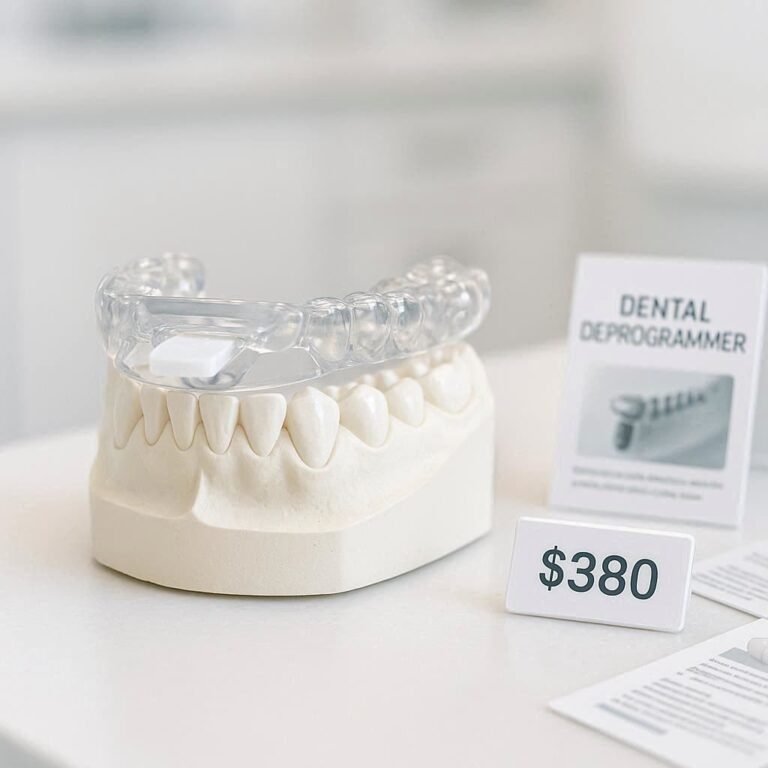The Ultimate Guide to Silver Tooth Cap Price: Costs, Benefits, and Alternatives
A silver tooth cap, also known as a stainless steel crown, is a common dental restoration used to protect and restore damaged teeth. Often used in pediatric dentistry but also for adult molars, silver tooth caps are durable, cost-effective, and long-lasting.
However, many patients wonder about the silver tooth cap price, how it compares to other materials, and whether it’s the best option for their dental needs. This comprehensive guide will cover everything you need to know—from costs and benefits to alternatives and maintenance tips.

2. What Is a Silver Tooth Cap?
A silver tooth cap is a pre-fabricated stainless steel crown that fits over a damaged tooth to restore its function and shape. These crowns are commonly used for:
-
Baby teeth with severe decay
-
Adult molars that need strong, long-lasting protection
-
Temporary crowns before a permanent ceramic or porcelain crown is placed
They are non-toxic, durable, and resistant to corrosion, making them a popular choice in restorative dentistry.
3. Why Choose a Silver Tooth Cap?
Advantages:
✅ Affordable – Cheaper than porcelain or gold crowns
✅ Durable – Resistant to wear and fractures
✅ Quick Placement – Often placed in a single visit
✅ Biocompatible – Safe for most patients
Disadvantages:
❌ Not Aesthetic – Visible metallic appearance
❌ Potential Allergies – Rare cases of nickel sensitivity
❌ Not for Front Teeth – Usually reserved for back teeth
4. Factors Affecting Silver Tooth Cap Prices
The cost of a silver tooth cap varies based on:
| Factor | Impact on Price |
|---|---|
| Dentist’s Experience | More experienced dentists charge higher fees |
| Geographic Location | Urban areas have higher prices than rural clinics |
| Tooth Location | Molars cost less than front teeth (if used) |
| Dental Insurance | Coverage can reduce out-of-pocket expenses |
| Additional Procedures | If a root canal or buildup is needed, costs increase |
5. Average Cost of Silver Tooth Caps Worldwide
-
United States: $300 – $800 per crown
-
United Kingdom: £150 – £400
-
Canada: CAD 250 – CAD 700
-
Australia: AUD 300 – AUD 800
-
India: ₹2,000 – ₹6,000
(Note: Prices vary based on clinic and case complexity.)
6. Silver Tooth Cap vs. Other Dental Crown Materials
| Material | Cost | Durability | Aesthetics |
|---|---|---|---|
| Silver (Stainless Steel) | $300 – $800 | 10-15 years | Poor |
| Porcelain | $800 – $2,500 | 10-15 years | Excellent |
| Gold | $800 – $2,500 | 20+ years | Moderate |
| Zirconia | $1,000 – $2,500 | 15+ years | Excellent |
7. How Long Do Silver Tooth Caps Last?
-
For baby teeth: Until they naturally fall out
-
For adults: 10-15 years with proper care
8. The Procedure: Getting a Silver Tooth Cap
-
Consultation – Dentist examines the tooth.
-
Tooth Preparation – Decay is removed, and the tooth is reshaped.
-
Crown Fitting – The silver cap is cemented in place.
9. Are Silver Tooth Caps Safe?
Yes, they are FDA-approved and biocompatible. However, patients with nickel allergies should opt for hypoallergenic alternatives.
10. Alternatives to Silver Tooth Caps
-
Porcelain crowns (better aesthetics)
-
Gold crowns (longer lifespan)
-
Zirconia crowns (strong & natural-looking)
11. Insurance Coverage for Silver Tooth Caps
Most dental insurance plans cover 50-80% of the cost, especially for pediatric cases.
12. How to Maintain Silver Tooth Caps
-
Brush and floss regularly
-
Avoid chewing hard foods
-
Visit the dentist for check-ups
13. Frequently Asked Questions (FAQs)
Q1: Are silver tooth caps toxic?
No, they are made from medical-grade stainless steel and are completely safe.
Q2: Can adults get silver tooth caps?
Yes, but they are mostly used for back teeth due to their metallic appearance.
Q3: How much does a silver tooth cap cost without insurance?
Between $300 and $800, depending on location and dentist fees.
Q4: Do silver crowns turn black?
No, but they may darken slightly over time due to wear.
14. Conclusion
Silver tooth caps are a cost-effective, durable solution for restoring damaged teeth, especially in children and molars. While they lack aesthetic appeal, their affordability and longevity make them a practical choice. Always consult your dentist to determine if they’re right for you.

